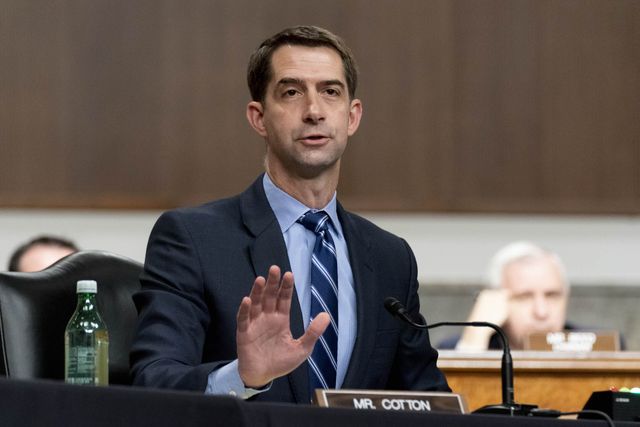The latest trend to sweep over pretty-faced, cisgender heterosexual male celebrities seems to be a very public, very loud feminine expression immediately followed by deafening praise. Long gone are the days of Prince or David Bowie causing scandals and rumors of their sexual orientation because of a little glitter or chiffon. Lately, heterosexual male celebrities seem to only further cement their heterosexuality by dawning magazine covers decked in gowns and chiffon and pretty, flowery things. Because, afterall how could a “real” man choose to arm himself in clothes socially aligned to queers and women if he weren’t so confident in himself? Himself meaning his heterosexuality, his manhood, his safety. One British pop star in particular seems to have built a brand around this notion of “dismantling toxic masculinity” with his personal, flamboyant style: Harry Styles.
Harry got his start through the English boy band One Direction, which gained massive international fame with their 2011 hit “You Don’t Know You’re Beautiful.” That was the same year I realized which things about myself I had to hide if I wanted to make friends. I now have the language to know I identify as a nonbinary queer person but when I was 10, I only knew I liked things I thought were pretty and other people didn’t like me because of it. The unlearning process took years, but eventually I began wearing clothes that told the world the person I was instead of the person I thought I should be. I didn’t do it because I felt safe enough to. Even in the progressive cities I’ve lived in like Austin and Chicago, I have been cat-called, harassed, followed home and held at knife-point as a direct result to what I was wearing and how I wore it. I did it because eventually, the need to live my life overpowered the very real judgement and violence I knew I was subjecting myself to through that expression.
And that is what makes the praise Harry Styles receives for essentially doing a watered down version of what every-day queer people have spent our entire lives suffering for uncomfortable at best. Just last week, he made history for becoming the first man to ever grace the cover of Vogue by himself while wearing a dress. The cover has received endless attention (a great deal more than the indigenous, non-binary muxe Estrella Vazquez got for her individual cover of Vogue Mexico and UK last year) via progressives praising it and conservatives trashing it for the reasons one would expect.
The cover is inseparable from another trend known as queerbaiting. Queerbaiting consists of heretosexual celebrities marketing themselves or their work towards queer audiences in particular by tapping into homoerotic tendencies, playing up their own sexual ambiguity in a misleading way. However, what Styles is doing is a different baiting of its own. As the popular Tik-Tok trend of primarily straight e-boys wearing sexy maid costumes has demonstrated, cisheterosexual men are realizing there is much to gain (views, followers, promotions, and yes, girls) by wearing traditionally feminine outfits. It is a form of expression that is absolutely rooted in and approrpriative of queer expression, but because of its target audience and purpose, I believe the cover falls more under the category of femmebaiting: appropriating femininity when there is power to be gained.
Later in the article, Gucci’s Alessandro Michele calls Styles “revolutionary” and actress-turned-director Olivia Wilde explains that Harry is “redefining what it can mean to be a man with confidence.”
After he was named co-host of 2019’s Met Gala with the likes of Lady Gaga, Styles cemented himself as a genderfluid fashion and style icon. That year’s Met Gala theme was “camp.” Shortly after, the Met Gala came under scrutiny for throwing a party so that the rich and famous could run around in gowns and suits while borrowing notes from a concept originated by Black queer people, who continue to face scrutiny, violence and even death for this very expression. And this is exactly the problem with the Vogue cover.
In all honesty, I am happy for Harry Styles. I’m happy that he can show his nipples in a black, ruffle-y, sheer top and not lose his career for it. But watching him be named a style icon, a revolutionary and a dismantler of toxic masculinity needs some revision. The notion of dismantling toxic masculinity to me is laughable because, after all, toxic masculinity is about upholding the harmful patriarchal roles assigned to men, like power-seeking. I don’t understand how this could be dismantled by a man putting on a dress handed to him by designers who dress billionaires specifically for the purpose of appearing on the cover of a magazine that without a doubt will increase his social standing, fame and power, instead of taking it away. It’s performative and only reinforces the way men are able to take what they want without having to take it too seriously or worry about the consequences.
I’d like to think that there will come a day whenever powerful, cishet-celebrities and gender nonconforming, queer kids in middle school can wear things that flow and wrap and shine without having to take it too seriously. I hope in the future, clothing isn’t separated by gender and instead, by how beautiful one feels in it. But the reality is, we are not there yet. We may be on our way, but it is a complicated and long process. In order to get there successfully, we have to be mindful of who we choose to praise for what they wear and why.





0 Responses
Really understand the message you are writing about, but Harry Styles is a member of the LGBTQ+ community as he identifies as unlabeled and has said that many times.
Being unlabeled does not make someone queer or a part of the lgbt community. A heterosexual person can be unlabeled. Also, in his Rolling Stones interview he explicitly stated he was straight.
Harry has never called himself part of the community or claimed to LGBTQ+. All he said was he didn’t care to talk about his sexuality. Not labelling doesn’t mean being queer. Calling him a member of the community is invalidating to queer people who are oppressed because of our labels. He is cishet presenting and is profiting off queer aesthetics. Like the article said, a queerbaiter.